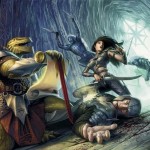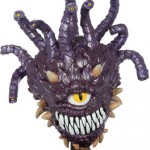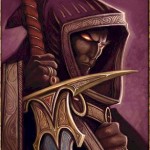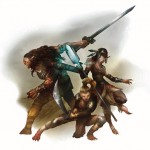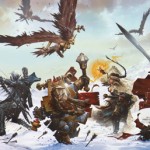 Wish your D&D game ran a little smoother? Especially during combat?
Wish your D&D game ran a little smoother? Especially during combat?
Sometimes – or often – turns lag with all the tactical richness that 4e offers. You have a lot of choices in the moment to make. And more than ever, teamwork is rewarded in D&D. So it helps to think of your allies before, during, and after your turn. Make this the good habit that it is, and you’ll find your playgroup’s turns moving along a lot more smoothly. And smoother combats mean more time to ensure the precious balance of storytelling and game that has always been D&D remains intact throughout your game sessions.
Tactical Awareness
How many free, immediate and opportunity action powers have you forgotten or missed in the chaos of battle? Or this or that hit bonus, damage bonus, or other temporary modifier? If you’re like me, your fair share. There’s a lot going on, and every little bonus or penalty adds up – and everything you do impacts not just you, but your entire party too.
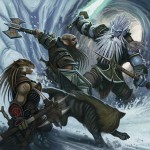
For example, your melee is going to want flanking opportunities to gain combat advantage as much as possible. Flanking is one of those mechanics that requires help – a teammate. You could say the same thing about many free actions and almost every immediate and opportunity action. That help is usually some sort of combat situation or trigger and it’s important you be on the lookout for that “help,” both in and outside of your turn. Your allies, your friends, are counting on you!
Consider sports teams. Better yet, consider a few of the arguably greatest and winningest sports teams either in the past decade or all-time: The New England Patriots and Boston Celtics. A huge reason for their team success is that each individual: Read the rest of this entry »
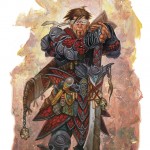
![]() You already know your characters are more than the sum of their abilities and statistics. You already know your characters have a unique look and a style all their own. You have a sense of how they treat people and how they look at the world. You have an idea where they’ve been, where they’re going, and most importantly… why!
You already know your characters are more than the sum of their abilities and statistics. You already know your characters have a unique look and a style all their own. You have a sense of how they treat people and how they look at the world. You have an idea where they’ve been, where they’re going, and most importantly… why!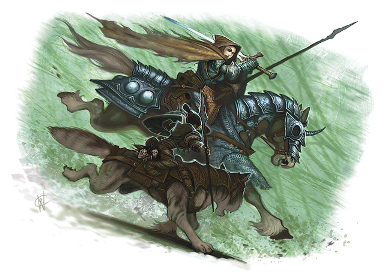
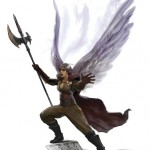 So I’m on Facebook yesterday talking with a friend about how we all rocked last night’s D&D session like, well, rock stars in our now-paragon Nentir Vale campaign. We start talking about other cool characters we’d like to play in case, Raven Queen forbid (and bring us back as revenants even! Love revenants!), we bite it.
So I’m on Facebook yesterday talking with a friend about how we all rocked last night’s D&D session like, well, rock stars in our now-paragon Nentir Vale campaign. We start talking about other cool characters we’d like to play in case, Raven Queen forbid (and bring us back as revenants even! Love revenants!), we bite it. 
